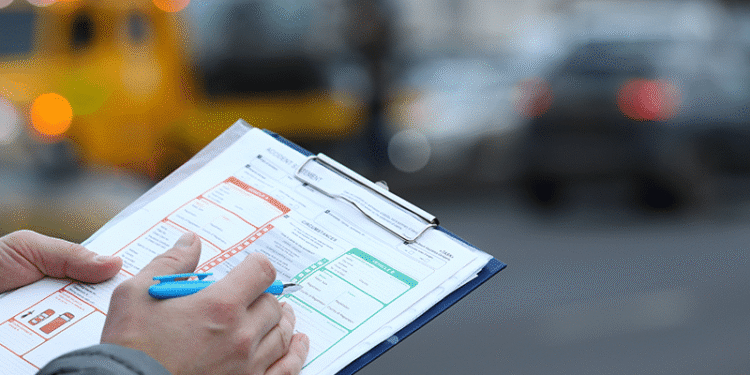After a car accident, the moments that follow are often filled with adrenaline, confusion, and a long list of questions. Once the dust settles, one document tends to play a pivotal role in what comes next, the police report. For those trying to find a police report for a car accident in Topeka, getting access might seem like a routine task, but the process can bring its fair share of hiccups. Whether it’s needed for an insurance claim, a lawsuit, or simply for personal records, a police report holds key information. And when that report is delayed, incomplete, or missing altogether, things can get complicated. That’s where legal help makes all the difference.
Why a Police Report Matters More Than You Think
There’s something almost unassuming about paperwork. Yet in the case of a car accident, that single document, usually filed by a responding officer, carries enormous weight. A police report can include statements from drivers, observations from law enforcement, witness contact information, diagrams of the scene, and even the officer’s opinion on fault.
Insurance companies rely on this report to assess claims. Lawyers review it to prepare for negotiations or court. Judges may reference it when weighing legal arguments. In short, the report becomes the official story, and when your side of the story needs to be protected, having that report in hand becomes critical.
Where Things Get Tricky
In theory, getting a police report is just a matter of asking. In reality, it’s often more nuanced. Reports are typically filed with the local law enforcement agency, city police, county sheriff, or state patrol, depending on where the crash happened. In Topeka, that could mean contacting the Topeka Police Department or the Kansas Highway Patrol. The catch? Each agency has its own process, fees, timelines, and quirks.
Delays can stem from backlogs, incomplete information, or the need to redact sensitive details. Some reports take weeks to be finalized. Others get filed under the wrong name or case number, making them hard to find. And for someone already dealing with car repairs, medical appointments, or legal deadlines, chasing down a police report can feel like one more exhausting item on an already too-long list.
How a Lawyer Can Help from Day One
This is where an experienced attorney becomes more than just legal support, they become a practical ally. A lawyer who regularly handles car accident cases knows exactly how to navigate the system, which department to contact, what forms to submit, and how to escalate if things stall.
But the help doesn’t stop at simply retrieving the report. A good lawyer knows what to look for in the report. Are the details accurate? Are there discrepancies that could affect an insurance claim or legal case? Is the officer’s assessment of fault fair? These questions matter more than most people realize, and an attorney’s trained eye can spot red flags before they cause problems down the road.
What’s Inside the Report, and Why It Matters
Understanding the contents of the report can also be a game-changer. A standard car accident police report typically includes:
- Date, time, and location of the accident
- Involved parties: names, addresses, insurance details
- Vehicle descriptions
- Narrative summary by the responding officer
- Diagram of the accident scene
- Statements from drivers, passengers, and witnesses
- Citations issued, if any
- Assessment of fault or contributing factors
It’s easy to assume that what’s written must be true, but reports can contain errors. Maybe a witness statement was misquoted. Maybe vehicle positions were reversed. These seemingly minor details can seriously impact the outcome of a claim. A lawyer can review the report, flag issues, and recommend the next step, whether it’s requesting a correction or preparing to dispute part of the report in a legal setting.
When the Report Doesn’t Match Reality
Sometimes, the report tells a story that doesn’t match the facts. It happens more often than expected. An officer might rely on incomplete information or make an assumption based on damage patterns that doesn’t reflect what really happened. In these cases, an attorney can take swift action. That may involve gathering additional evidence, photos, video footage, expert analysis, or identifying new witnesses who weren’t included in the report.
Legal professionals also know how to supplement the report with stronger documentation. That could include medical records, statements from accident reconstruction experts, or written testimony. It’s all about building a clearer, more accurate picture of what took place, and ensuring your version of events isn’t buried under a flawed narrative.
Insurance Companies and the Weight of a Report
One of the biggest reasons to secure a police report quickly is insurance. Carriers lean heavily on this document when determining liability and calculating payouts. An error in the report, or a delay in accessing it, can put your claim at risk. Insurance adjusters may deny coverage, reduce the settlement offer, or argue that fault lies elsewhere.
Having a lawyer involved from the beginning levels the playing field. Legal support ensures that your claim is presented clearly, the report is obtained in a timely manner, and insurance companies don’t take advantage of missing or misleading information. If disputes arise, an attorney can step in, file appeals, and advocate for fair compensation.
Not Just for Lawsuits
Even if you’re not planning to sue, legal support can still be beneficial. There’s value in having someone who understands how local systems work and can help you navigate them with confidence. Some people seek legal help simply to make sure their bases are covered, especially when injuries are involved or when the insurance company starts pushing back.
A lawyer can also help assess whether a case is worth pursuing further. Sometimes, it’s not just about the police report, it’s about understanding the bigger picture. A legal consultation can help determine whether the situation calls for additional action, or whether it’s best to let things rest.
How Long Does It Take to Get the Report?
In Topeka, the timeline varies. Some reports are available within 5 to 10 business days, while others can take several weeks. The process can be delayed if the report is under review, if the accident involved serious injuries or fatalities, or if there’s an ongoing investigation. For someone handling this solo, the waiting period can be frustrating. But a lawyer often has better access and faster channels for requesting documents, which helps cut down on time and guesswork.
What to Do If the Report Can’t Be Found
In rare cases, a police report seems to vanish. Maybe it wasn’t filed correctly. Maybe the officer made a typo on the report number. When the system doesn’t cooperate, it’s easy to feel powerless. But an attorney knows how to troubleshoot. They can follow up with the department, clarify the case information, and track down the document. If necessary, they can even help file a formal request to amend or reconstruct the report.
Peace of Mind in a Few Pages
At the end of the day, a police report might just be a few sheets of paper, but those pages hold serious influence. For anyone trying to find a police report for a car accident in Topeka, especially when time is of the essence or the process feels confusing, having a legal partner on your side brings peace of mind.
It’s about more than paperwork. It’s about accuracy, fairness, and making sure the facts are in the right hands at the right time. Whether you’re pursuing a claim, defending against accusations, or just closing the loop after a stressful event, a lawyer can make sure your story is seen, heard, and protected, one detail at a time.













